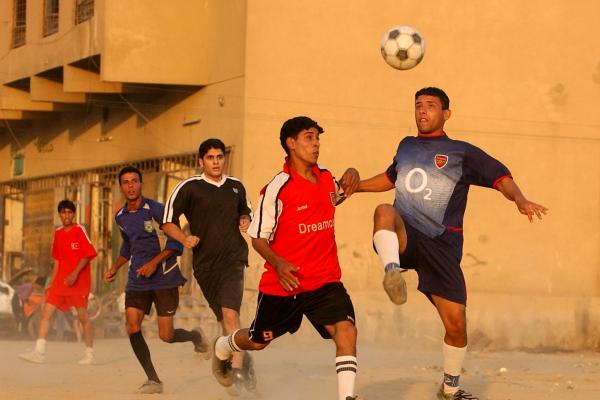
Under the Islamic State (IS) as well as Al Qaeda, soccer stadiums have re-emerged as preferred jihadist targets, but, at the same time, the game has become a potent tool in their recruitment efforts, according to a study in the American Behavioral Scientist (online version, March 2). Last month’s bombing at a soccer stadium in Iraq by IS was just one in a series of attacks against soccer matches by jihadists stretching back to Al Qaeda’s plans to strike the 1998 World Cup. Scholar James M. Dorsey writes, “Many jihadists see soccer as an infidel invasion designed to distract the faithful from fulfilling their religious obligations. Yet others are soccer fans or former, failed or disaffected players who see the sport as an effective recruitment and bonding tool.” Jihadists such as Osama Bin Laden were advocates of the game, seeing it as fulfilling Islamic precepts of maintaining a healthy body, though they were not hesitant to target stadiums with violence. Self-declared IS Caliph Abu Bakr al-Baghdadi (once a talented soccer player himself) has banned the game in its territory but uses soccer in IS recruiting videos.
There have even been jihadist attempts to transform soccer, as in the case of a controversial 2005 Internet ruling from Saudi Arabia that called for the Muslim version of the game to forsake uniforms, ordering players to spit on anyone scoring a goal, and that fouls and disputes be adjudicated on the basis of the Sharia. But most importantly, soccer teams and clubs have served as informal networks creating strong bonds of trust among potential jihadist recruits. Scott Atran of the University of Michigan says that being a member of an “action-oriented group of friends,” such as “soccer buddies,” is a reliable predictor of whether or not someone joins the jihad. There have been a number of European players from immigrant backgrounds who have radicalized, including five East Londoners of Portuguese descent who are believed to have produced IS’s gruesome videos of beheadings. Add to that the long-time European, and particularly French, fears about immigrant soccer violence, and it is not difficult to see how the lines can blur in many minds between soccer fandom and jihadists. A successful attack against a match in Europe “would go a long way to achieve IS’s goals of polarizing communities, exacerbating social tensions, and driving the marginalized further into the margins,” Dorsey adds.
(American Behavioral Scientist, http://abs.sagepub.com/)
